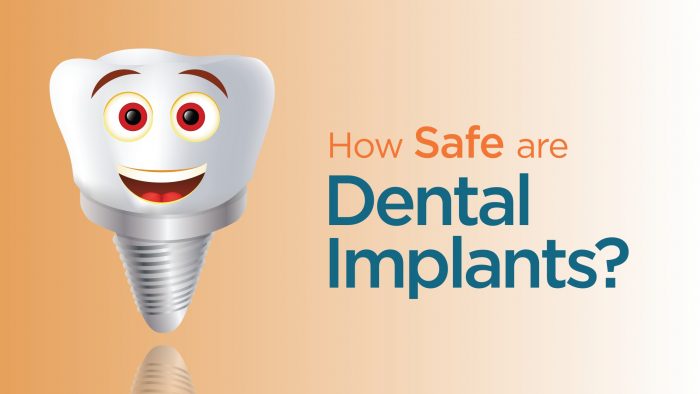How SAFE are Dental Implants?
September 3, 2021
The loss of one or multiple teeth can be the result of many factors like tooth decay, trauma to the tooth, or extraction due to loosening of teeth in old age.
Once you lose a tooth, you must immediately think of getting it restored. Unless the extracted tooth was a wisdom tooth, all other teeth require replacement as soon as possible. Sure, you may feel that you can manage with a missing tooth, but remember that in the long run, the space where your extracted tooth was, will cause other teeth to move, and this can create issues later.
So how exactly can one replace a missing tooth? One of the most common solutions to this problem is a dental implant. A dental implant is probably the most acceptable treatment option for a missing tooth, and also the one with the highest success rate. But many still have some apprehension with this treatment option, especially because a surgery is involved.
We’re here to put all your doubts to rest. Let us understand what a dental implant is, and whether it is a safe treatment option for replacing missing teeth.
What are Dental Implants?
A dental implant is a titanium screw-shaped structure that is surgically placed within your jaw bone, exactly where your previous tooth’s root was. A dental implant effectively acts as the root of your new tooth. A crown is then placed over the implant, and in this way your missing tooth is replaced.
Are Dental Implants Safe?
Dental implants are one of the safest tooth replacement options, and have been used for over 30 years in patients with moderately good health and oral hygiene. Dental implants have a success rate of upto 95%.
But of course, this doesn't mean that dental implants can be placed in every patient. There are some criteria that must be fulfilled in order to get a successful dental implant placed.
For example, a dental implant cannot be immediately placed in people with the following problems:
- Lack of sufficient bone to hold the implant
- Periodontal or gum disease
- Chronic systemic conditions like diabetes, hypertension and heart disease.
Having said that, the above issues are not an absolute contraindication for dental implants. Gum disease can be treated by a periodontist, and once the periodontium is healthy, the implant can be placed.
Similarly, for inadequate bone, a bone graft can be used to increase the bone height, and the implant can be placed. Systemic conditions, too, can be managed with the help and consent of a physician, and the implant surgery can be performed.
Who Cannot Use Implants?
Even though dental implants are quite safe, there may still be some people for whom dental implants may not be the best solution to replace their missing teeth.
- If the patient is a heavy smoker, chances of implant failure are high, and hence dentists may avoid placing an implant
- A dental implant is made up of titanium. If you’re allergic to copper, zinc, lead, or nickel, then your dentist may recommend an alternative option for tooth replacement.
Conclusion
In the end, dental implants are a safe and reliable treatment option. The procedure for dental implants is eventually a surgery, and hence the risks associated with any surgery also apply to this particular one.
But keep in mind that only a tiny fraction of patients undergoing implant surgery ever face any complications. So if you’re thinking of getting dental implants, you can go ahead and set the wheels in motion, after you have consulted your dentist and had your queries answered.















































